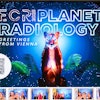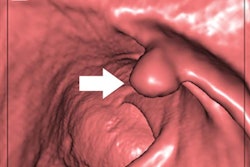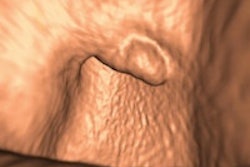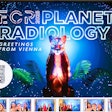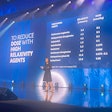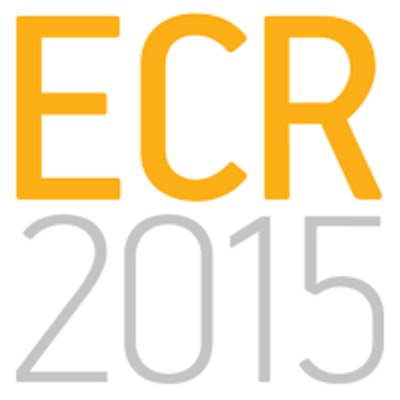
VIENNA - Whether it's fear of endoscopes or love of high technology, Italian men appear more willing to undergo CT colonography (CTC) than flexible sigmoidoscopy, according to the results of a late-breaking trial presented at ECR 2015.
The men from the Piedmont region of northern Italy were nearly 10% likelier to respond to an invitation for CTC screening than for flexible sigmoidoscopy, a shorter version of conventional colonoscopy that reaches only the distal half of the colon. CTC also yielded nearly twice the rate of advanced neoplasia.
Owing to the higher prevalence of advanced polyps in men, the gender difference seen in the participation rates could be critical, the researchers noted.
"CTC significantly increases men's participation in colorectal cancer screening, while women showed a similar response" to CTC and flexible sigmoidoscopy, said lead investigator Dr. Daniele Regge, a radiologist at the Institute for Cancer Research and Treatment (IRCC) in Candiolo.
 Dr. Daniele Regge from IRCC.
Dr. Daniele Regge from IRCC.The first randomized controlled trial to compare uptake of CTC (also known as virtual colonoscopy) versus flexible sigmoidoscopy (FS) also showed men to be at higher risk of advanced neoplasia, consistent with previous research, Regge said.
The primary aim of this first arm of the study was to determine participation for CTC versus FS screening. The second arm of the trial to be reported next year will compare the diagnostic efficacy of the two exams plus the fecal occult blood test (FOBT).
Asymptomatic subjects ages 58 to 60 years with an average risk of colorectal cancer were randomized to receive an invitation letter for either CTC or FS screening -- without being informed about the availability of the test they were not invited to receive. The investigators collected data on the reasons for nonparticipation, assessing the acceptability of each exam as a predictor of screening behavior.
To compare the detection rate of the two exams, an additional sample of eligible subjects in the Piedmont region and Verona, Italy, were invited to participate in a screening trial, with participants randomized to receive either FS or CTC.
There are data on the performance of conventional colonoscopy versus CTC showing a comparable yield of advanced neoplasia, but nothing on CTC versus FS, Regge said. In the current trial, eight centers performed the screening, and the results were organized in a single data reporting center, with computer-aided detection used for CTC screening.
There were 298 responders in the CTC group (30.4% of 980 invitees) and 264 responders in the FS group (27.0% of 976 invitees), Regge said.
"The interesting thing here is there was actually a higher response rate versus women: Men were attendees at 34.1% of CTC versus 26.6% for flexible sigmoidoscopy," he said. Among women, the response rates were nearly identical: 26.7% for CTC versus 27.4% for FS.
In assessing acceptability of the exams in a patient survey, the discomfort of the noncathartic bowel cleansing was considered more severe than flexible sigmoidoscopy, with 42% of CTC patients expressing moderate to severe discomfort versus 7.3% of FS patients. Pain and anxiety levels were very low for both tests, but slightly favored CTC as the better test, while levels of embarrassment were higher for CTC, with 11% experiencing moderate embarrassment versus 7% for FS.
Factors likely to increase interest in CTC included male gender (odds ratio [OR] 2.4), being retired (OR 2.1), seeking counseling from a general practitioner (OR 2.6), or having friends with colorectal cancer (OR 4.1), Regge said. Additional factors increasing the likelihood of response were reading literature about colorectal cancer screening (OR 7.3) and having an active lifestyle (OR 2.2). The main reasons preventing screening with CTC were problems with organization or illness (28% of nonrespondents), embarrassment (19% of nonrespondents), or absence of symptoms (13% of nonrespondents).
Importantly, individuals receiving CTC rather than FS had twice the level of advanced neoplasia detection.
| CTC vs. flexible sigmoidoscopy | ||
| Outcome | CT colonography | Flexible sigmoidoscopy |
| Exams | 298 | 264 |
| Inadequate tests | 7 | 8 |
| Positive tests | 37 (12.4%) | 15 (5.7%) |
| Colonoscopy performed | 37 | 14 |
| Advanced adenomas | 13 (4.4%) | 6 (2.3%) |
| Colorectal cancers | 3 | 0 |
Advanced neoplasia prevalence was also significantly higher among men (p = 0.017). And, as might be expected considering that FS doesn't reach the proximal colon, the prevalence of neoplasia was higher in the proximal colon with CTC (3%) versus FS (0.3%), Regge said.
"Consistent with the data in the literature, men were at higher risk for advanced neoplasia," he said. "CT screening programs should address patient education and reduce structural barriers and obstacles that make it difficult to for people to access screening."
The researchers plan to further study ways to increase male uptake for colorectal cancer screening, he added. CTC appears to improve the diagnostic yield versus FS, but this arm of the study was not powered to compare performance. The comparative performance of the two exams plus the performance of FOBT will be examined in more than 14, 000 individuals in the second part of the study.
 Dr. Andrea Laghi from the University of Rome "La Sapienza."
Dr. Andrea Laghi from the University of Rome "La Sapienza."Commenting on the results, Dr. Andrea Laghi from the University of Rome "La Sapienza" said it's important to remember that the participation rate is even more important than the performance of a test when it comes to screening. Therefore, if CTC is something more men are willing to undergo than FS, the increased yield from screening could be a highly significant factor in finding early disease.
As for participation, the researchers were expecting a much higher participation rate for CTC, but seen in the context of Italy, where only 46% of the eligible population is screened for colorectal cancer, mostly with FOBT and FS, even a small advantage for CTC is noteworthy, Laghi said.
Awareness of colorectal cancer and the desire for screening are both low, and objections to the tests, such as organizational problems and illness, "I think are really just excuses from patients who don't want to undergo a screening test for colorectal cancer," he said. "The most important action we have to take in the European Union is to promote screening among individuals."
Unfortunately, even in 2015, CTC is not recommended as a screening test alongside FS, colonoscopy, and FOBT, he said. And given the popularity of FS in the region, as well as the presence of a champion FS investigator, CTC was lucky to have prevailed even by a small measure. More marketing will be critical for CTC, and more improvements are needed to make the test easier.
CTC deserves to be better known, Laghi said. After all, CTC found all three colorectal cancers in this study, compared with zero for FS.

